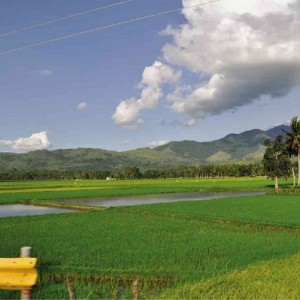Bigger LGU role in land use allocation sought

AS THE COUNTRY seeks to protect prime agricultural lands, it must also identify areas that could be utilized to address the population’s exponentially growing need for decent homes.
According to the National Mapping and Resource Information Authority, the Philippines has a total land area of 30 million hectares. Half of this or 15.8-million hectares are classified as forest land while the remaining 14.2-million hectares are areas that are now devoted if not being planned to be designated for agricultural, industrial, recreational, or residential purposes.
“Indeed, we only have a finite amount of available land that we could utilize. As the country makes sure enough land are allocated for agricultural purposes, authorities must also ensure that enough land is devoted to rural development and overall national development,” said Paul Tanchi, chair and national president of Subdivision and Housing Developers Association (SHDA).
The country’s biggest and oldest association of shelter and property developers is thankful that the Senate delayed the passing of Senate Bill No. 3091 or “An Act Instituting A National Land Use Policy.”
According to SHDA, the bill, which is currently in its final stage of review and consideration, has somehow failed to resolve the concerns of developers regarding which agencies or authorities should have the power to classify lands within a particular locality.
Allocated
Article continues after this advertisement“For every locality, land should be zoned judiciously and allocated for residential, commercial, industrial, institutional, forestry, agricultural, open space and other functional areas. We believe the local government units are in a better position to identify which sections of their respective localities are best suited for further development, change or kept intact,” Tanchi said.
Article continues after this advertisementHe related that a provision that gives power to cities and municipalities to approve their respective comprehensive land use plan (CLUP) and zoning ordinance (ZO) was somehow omitted in the latest revision of the bill and instead gave the Department of Agriculture and the Department of Agrarian Reform sweeping powers.
SHDA is alarmed that the latest version of the pending bill defines all agricultural lands as protected areas and keep them from being converted to housing, infrastructure and other nonagricultural purposes.
“For us developers and I believe the majority of stakeholders would agree, it would be more appropriate if the LGUs should be in charge of land allocation, zoning and utilization. Besides, we are also proposing that these CLUPs and ZOs be reviewed by their respective provinces to prevent abuse,” Tanchi said.
Those in the housing industry are concerned that the DA as well as the DAR would push for rules that would stop if not limit the abilities of developers to put up more houses.
Not to forget
“While we should ensure prime agricultural lands as well as the environment and its natural resources are protected, we should not forget the country’s need for housing and urban development,” said Ricky Celis, SHDA first vice president, during an interagency meeting with various stakeholders of the housing industry.
He explained that if nothing is done to solve the current situation of the country’s housing problem, the Philippines by 2030 will have 207,000 families without homes as well as almost 1 million families living in informal settlements or under dilapidated shelters.
“The situation is much more dire for the government, which will now have to face a housing backlog of 12.5 million houses. With so many families living in decrepit conditions, in slums and dangerous locations, the government will not only face the lack of houses but water and sanitation problems as well as allocation for basic and support services,” Celis warned.
Tanchi added that while existing land use plans are largely outdated, and zoning ordinances tend to be poorly implemented, the proposed National Land Use and Management Act (Nluma) should be a model for a rational, holistic and just allocation, utilization, management and development of our country’s land and resources therein.
“As we support the immediate passing of SB 3091, we also urged that its provisions be revised so it would be rational, holistic and just when it comes to allocating the country’s land resources. After all, we only have a very limited number of land area that could be classified and managed. Let us make sure it would be for the benefit of the majority of the Filipinos,” Tanchi urged.